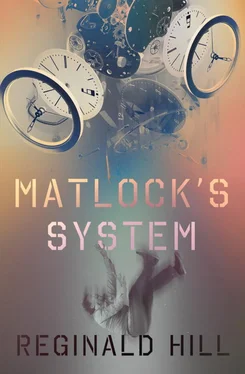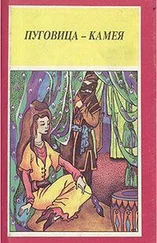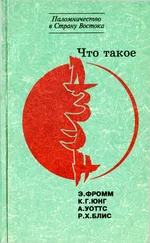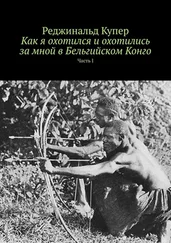“You’re welcome.”
In fact the Wall was easy. The great metal-plastic structure, sixty feet high throughout its length, prefabricated in a month and dropped into place section by section in less than a week, looked sinister enough as it snaked away to east and west following the roll and turn of the hills, but only one gun started up as they leap-frogged over at a height of several hundred feet, and that was well out of range and soon stilled.
Matlock relaxed, but soon tensed up again when he saw no signs of similar relaxation in his two companions.
“What’s the matter,” he asked finally. “The Wall’s past. We must be in Scottish air space now. What’s the trouble?”
“You don’t imagine the sovereignty of Scotland bothers the English Air Force, do you?” sneered the pilot.
“The reverse is certainly true,” rejoined Matlock.
“And lucky for you it is, Mr. Matlock. No, the Wall itself was little enough obstacle as long as a chancy shot doesn’t take you. But if I was in charge of this operation, I’d send my ’copters fifty miles or so over the Wall into Scotland, wait till my observers on the Wall had spotted us, then give the ambushers our crossing point, speed, direction, etc.”
“Dear God,” said Matlock, his mind racing now. “Then why don’t we land as soon as possible and proceed by road?”
“What a good idea,” said the pilot ironically.
He pointed ahead. At first Matlock could see nothing, then suddenly out of the darkness he picked a point of red light, then another, then two more.
“Now if we can just get down without being spotted, they can trespass up above as much as they like.”
Slowly they dropped towards the square of safety. A kilted figure appeared and began to wave them down. Others stood further back, guns at the ready. The lights were extinguished even before they touched.
“Out,” said Ossian.
Matlock realized as he tumbled out on to the long wet grass that this was the first word he had heard Ossian speak.
A small reception party approached, headed by a tall uniformed figure who saluted the man with the hole in his head, then held out his hand.
“Mr. Boswell, I’m Colonel Mackay. Glad to see you safely here, sir.”
“Thank you. Is there a car for us?”
“Aye, it’s all laid on. We’ll have you in Edinburgh within the hour.”
Boswell stiffened slightly and Matlock had an impression of a new alertness, but his voice was as soft and even as ever when he spoke.
“It was Glasgow we were to go to.”
“I know sir. A change of orders. Those are my instructions.”
“I see. Well, let’s be off.”
He half turned then said with a small gesture, “This is Mr. Matlock,” before walking briskly towards a group of vehicles just visible as dark outlines in the slight mist rising from the sodden field.
“I thought it would be,” said Mackay. “Matlock, eh? Well now.”
His tone was quite neutral, but Matlock felt glad when Ossian propelled him after Boswell with what might have been meant as a gentle push.
Rubbing his arm, he hurried away and clambered into the back seat of the awaiting car which jerked forward before Ossian, squeezing in behind him, had time to close the door. They moved slowly at first over what seemed a very rough track, if that, then began to pick up speed as the surface improved. Glancing back he was surprised to see distantly the red guidelights flicker to life again.
Boswell followed his gaze and answered his unspoken question.
“Now we’re safely out of the way, these soldiers can have their rough fun. They’re lying in the heather with their guns all ready, hoping that some of our trespassers will spot the lights and fly low to investigate.”
He laughed at Matlock’s slight flicker of distaste.
“Don’t worry too much, Mr. Matlock. Your countrymen have grown rather more cautious than they used to be about taking such bait. Our soldiers will probably just get cold and wet for nothing. But it’ll sharpen their appetites; oh yes, it will do that.”
The lights were now completely out of sight. Matlock settled back with a sigh. Then he managed a half-smile as he remembered Colonel Mackay’s insignia.
“It’s probably too far back for you to recall, Mr. Boswell, but when I was a young lad in the late sixties, I can remember seeing posters and stickers on car windows which said, ‘Save The Argylls’. I suppose in a way I did.”
There was no reply and the rest of the journey went by in silence.
Dawn was breaking as they ran smoothly through the silent suburbs of Edinburgh. As they turned into the long steep street that led up to the dark bulk of the castle, Boswell let the window down and on the sharp-edged breeze that blew in Matlock smelt the sea.
If he had expected quick answers to the hundreds of questions crowding his mind, he was soon disappointed.
He had heard the ancient cannon, which still boomed out the hour at one o’clock each day, twice startle the birds roosting on the ramparts. And still there was no indication of what their purpose with him might be.
He was surprised to find he had the beginnings of a cold. It was a quarter of a century since he had had a cold and he had thought his resistance had been permanently built up. But evidently the course of injections he had undergone did not cater for men of nearly seventy wading along rivers and not changing out of their damp clothes for several hours thereafter.
He was inclined, however, to blame his present quarters as much as his ducking. The apartment they had given him was sumptuously furnished and bright and airy. Too airy. He had forgotten that rooms as draughty as this could exist for people to live in. It was bad as the ancient halls his meetings had only half filled. And the sumptuousness of the furniture was appreciable aesthetically rather than ergonomically. It was all several hundred years old and the whole room reminded him of the ‘public’ apartments of the old stately homes, open for a season and an admission fee to the gawping mob. In fact, the room had exactly the same faintly dank smell as these places, the same aura of unlived-in-ness. He would not have been too surprised to wake up and find himself being observed from behind a rope of red velvet by a group of bored sightseers.
This sense of archaism did not end outside his room. He found that he was able to stroll quite freely around the battlements of the castle, though he was always aware of being overlooked. The city which lay spread out beneath him seemed incredibly old fashioned. He could look out across the New Town (New!) to the distant pale scar which was the Forth, and see almost the same view as the French prisoners held in the castle during the Napoleonic wars.
Even the shops of Princes Street, seemed still to belong firmly to the twentieth rather than the twenty-first century, while the gardens below looked as well-tended and attractive as ever.
“I see they never finished this side of the street,” he said to a soldier who had come up beside him (to stop me jumping over? he wondered). He knew this was an old Glasgow jibe at the pretensions of Edinburgh to be the nation’s capital, but was surprised to see the hostility which flared briefly in the man’s eyes.
“Just a joke,” he said, and returned to his staring.
That evening after finishing his lonely meal in his room he spoke to the orderly who came to clear it away.
“Please tell whoever is in charge here that I must speak to him.”
The man did not reply and after he had left, Matlock settled down to his reading of the only book he had been able to unearth in the room, the Complete Poems of Robert Burns. He had not read very far when there was a gentle knock at the door.
Читать дальше












